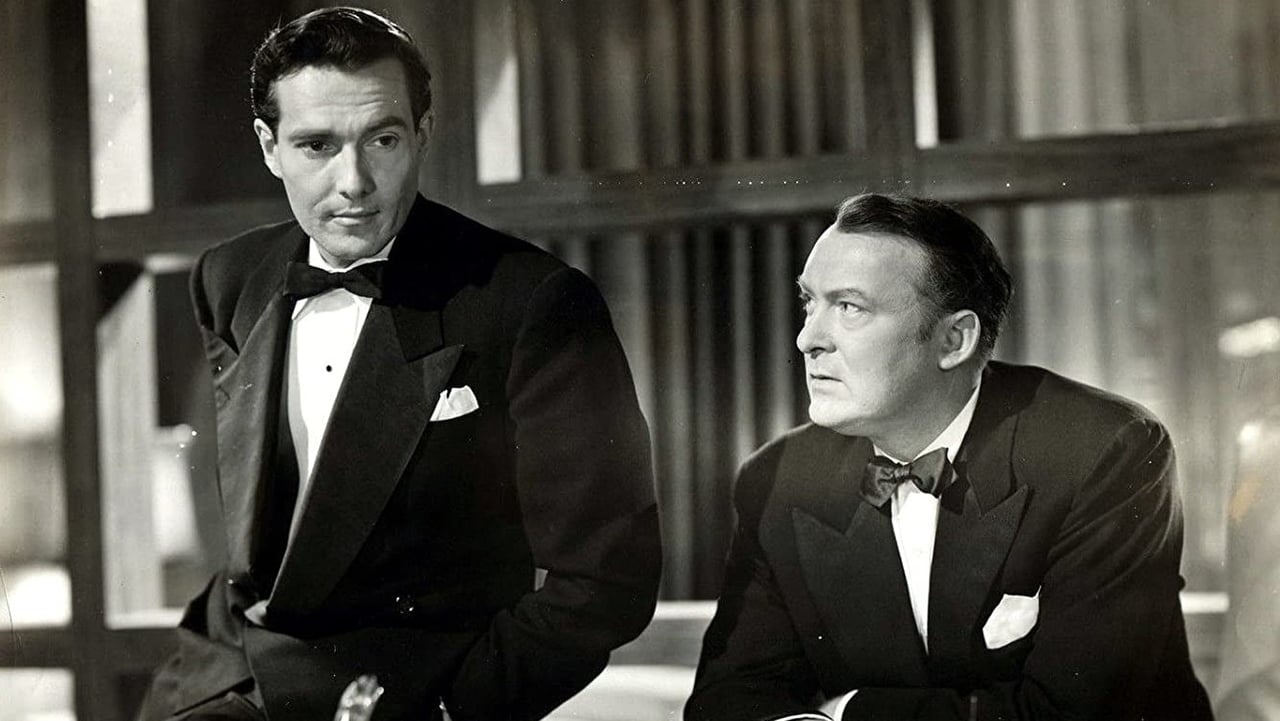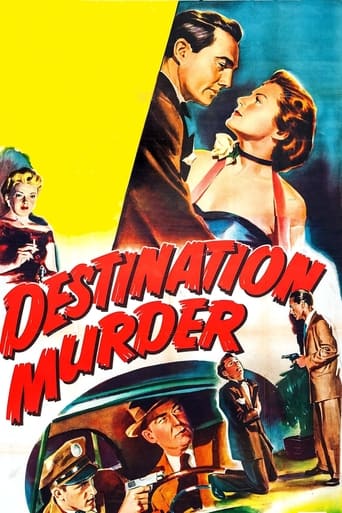

Rather than let the police solve the murder of her wealthy father, the daughter (Joyce McKenzie) enters into the shady underworld to find the responsible party behind her father's murder. This underworld centers around a swanky nightclub named "The Vogue", with Steve Gibson and the Red Caps as its in-house musicians. Upstairs resides the club's presumed owner, a hulky Mr. Armitage (Albert Dekker) and his presumed assistant Stretch Norton (Herd Hatfield). McKenzie works her way upstairs by getting in close with the actual shooter, a messenger boy named Jackie Wales (Frank Clement), who agreed to kill her father for five thousand dollars. Why the decision to kill the father was taken seems ridiculous, but things move along fairly well, as Mr. Armitage makes a fine role in the collection of B movies sadistic bad guys, as he takes care of business while a player piano churns out Chopin. Dekker's role resembles something Raymond Burr might have played in a better funded post-war crime drama. Nonetheless, the director Edward L. Cahn finds some excellent scenes to fill up the screen.
... View More"Destination Murder" makes for an enjoyable 70-plus minutes, assuming you're a noir fan and are not bothered by the sort of unlikely plot developments so characteristic of this genre. Notable are the solid performances of Hurd Hatfield (whose name will always be linked with "Dorian Gray") as a sleazy but debonair nightclub manager, the beefy Albert Dekker (whom I will always think of as "Dr. Cyclops"), and Joyce Mackenzie -- a really classy beauty in the sort of wholesome Jane Wyatt mode -- as the plucky heroine who, Nancy Drew-like, disguises herself as a nightclub cigarette girl to help solve the mystery of her father's murder. Also notable is the odd relationship -- odder than we initially assume -- between the Hatfield and Dekker characters. There are several clever plot twists and some interesting little bits of directorial business (e.g., a scene in the ladies' powder room of the nightclub, which offers an unexpected little study in social pecking order when two women ask for a glass of water; and a player piano that's activated when violence is going to take place). What stays with me longest is the memory of Mackenzie's gorgeous eyes and cheekbones.
... View MoreNothing really stands out in this below mediocre film-noir: the acting is shaky, the music isn't interesting, the story doesn't convince (sucks basically), the cinematography doesn't appeal and the mob isn't even there. But it's not bad enough to turn it off halfway. The pace is OK, the whole is kind of entertaining, it's not too long (65 min.) for its content and its flatness seems to be its power. Or is the jargon for that 'directing makes up' ? Anyway, I think this is a b-flick that should have been made fifteen years before to be appreciated.I just happen to like film-noir enough to rate this 6/10
... View MoreThis is a good crime/suspense drama, of a piece with the other film noir dramas presented by Turner Classic Movies (and therefore well worth the time to watch). There is at least one neat twist in the plot which makes the film better than most of its kind. If you have seen a LOT of postwar crime films (as I have) you may find them predictable...and this adds to your appreciation of clever plot devices.Fans of radio's "Have Gun Will Travel" will enjoy seeing John Dehner in a small but crucial part.
... View More